Ontario’s recreational marijuana industry buzzing during early days
Ontario’s recreational marijuana industry buzzing during early days
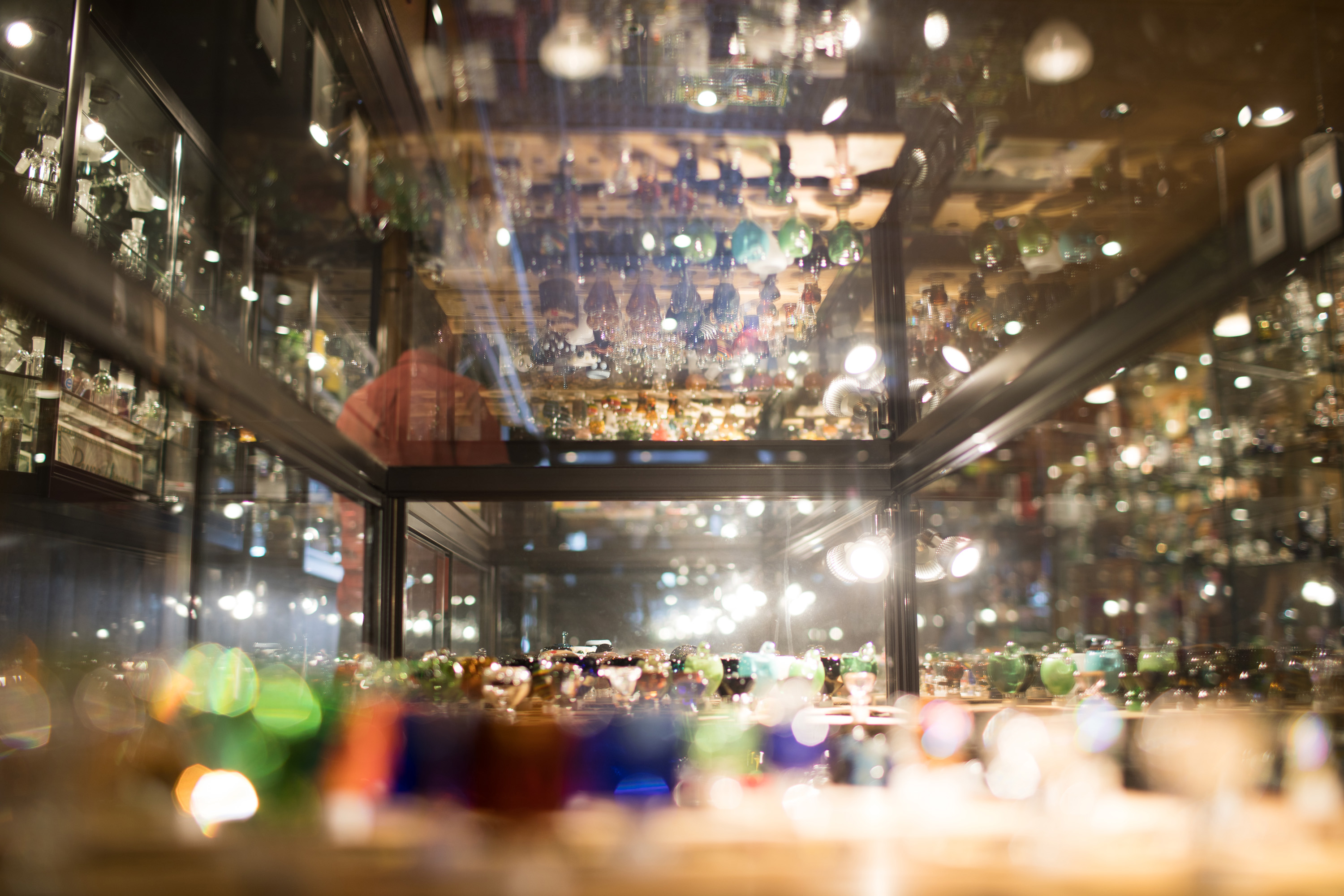
Max Bonilla was casually packing his Toronto apartment into dozens of cardboard boxes one night last January when an email notification dinged on his phone.
Bonilla stared at the familiar name in his notification bar: The Alcohol and Gaming Commission of Ontario.
Bonilla knew this was the update he had been anticipating all week — the one that could send his life in an entirely new direction. Bonilla opened the email and read it several times over until he could process the news. Jackpot!
His plans to move to St. Catharines an hour away would now be his venture onto the so-called “high-way,” as one of only 10 Ontarians allowed to set up shop in the province’s budding marijuana market.
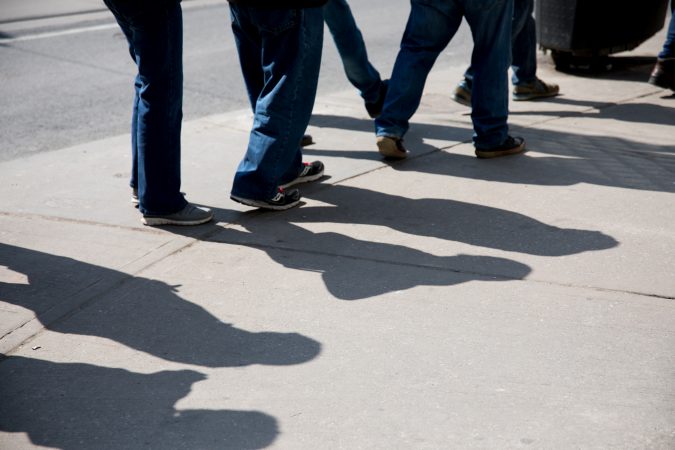
Its first crop of legal brick-and-mortar pot shops opened on April 1. The shops were met with long lines of people from different walks of life, from young businessmen to elderly couples — some not even from Canada — all wanting in on the high. The public’s interest translated into significant sales, as some shops reported opening-day profits of more than $50,000.
Ontario is anticipating $60 million in tax revenue per year from Canada’s recent legalization of recreational cannabis, University of Western Ontario professor Mike Moffat told CBC. As the Ontario government approves the opening of more retail cannabis shops, with plans to open 150 stores by 2020, that figure could reach as much as $1 billion per year along with spin-off economic benefits such as new jobs, reduced crime and fewer drug arrests.
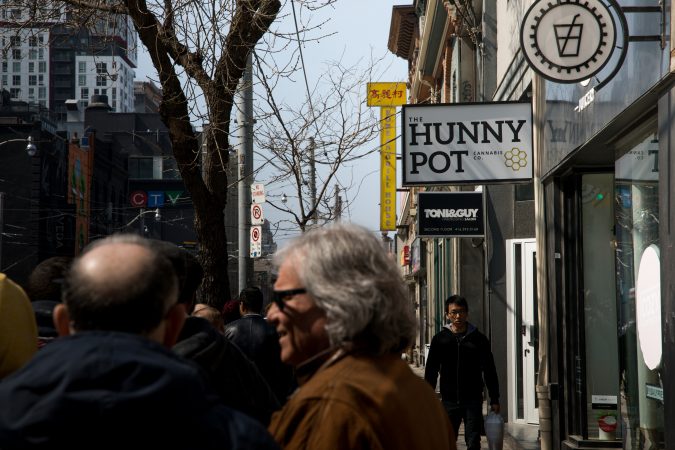
As New York state contemplates legalizing the sale of recreational cannabis in 2019, the opening of dispensaries on the other side of the U.S.-Canadian Border offers a glimpse of what may lie ahead.
Still, in his opening week at The Niagara Herbalist in St. Catherines, Bonilla was elated by the initial response.
“Our line started with 100 people at the opening, and it hasn’t stopped,” Bonilla said. “It’s been several days since opening, and the lines won’t stop.”
Self-described “cannabis connoisseur” Marc O’Brien, who has visited the shop daily during its first week, said that he appreciates being able to buy with confidence at a store rather than off dealers on the street.
“I’ve been able to try different strains of weed and not have to see a sketchy drug dealer on the fourth floor of an apartment building,” O’Brien said. “Everyone here is really knowledgeable, and you know exactly what you’re getting.”
O’Brien expects that the consumer-friendliness and variety of options at the new pot shops will attract significant business.
“They have stuff at different price ranges, so I can get something that fits my bill instead of having to throw in a lot of cash for a bunch of weed at once,” O’Brien said.
The Hunny Pot in Toronto, another of the first retail cannabis shops to open in Ontario, drew a similar crowd of eager patrons.
Customer Cathy Serrano, who lives blocks from the store, said the emerging recreational marijuana industry is beneficial for everyone.
“It’s education-based, so the stigma is going to be taken out of the industry,” Serrano said. “And the stigma should have never been there in the first place. The availability of recreational weed is good for society as a whole, whether you are a user or not.”
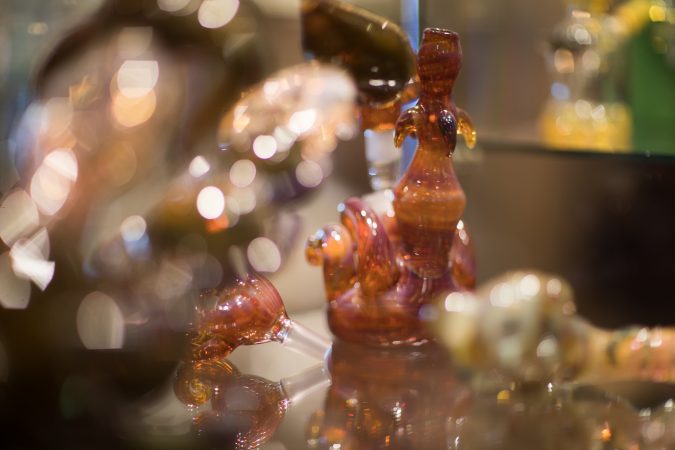
New York state is already considering benefits from the cannabis craze as producers are exploring more ways to capitalize on and innovate the substance.
In January, Canadian producer Canopy Growth Corporation announced its plans to spend $150 million to set up a hemp production facility in New York state, with the exact location still undecided. This news came shortly after the U.S. farm bill was passed, which legalized hemp and hemp-derived cannabidiol, or CBD. The company plans to source hemp exclusively from New York state farmers, with the company recently obtaining the rights to buy a production factory in Dewitt for a potentially multi-billion dollar deal.
Early this month, cannabis producer Flora Buffalo announced its plans to build a 1.25-million-square-foot cannabis farm in South Buffalo. This came in anticipation of the legalization of adult-use marijuana in New York. The $200-million-plan says it would employ 500 to 1,000 people, The Buffalo News reported.
Sherri Graham, general manager of Cannabis Supply Company, an Ontario-based medical marijuana clinic with plans to expand into retail cannabis space, says the U.S. farm bill will offer economic opportunity to residents living on both sides of the border.
“With hemp, they’re currently making materials as strong as steel and bricks; perfect for fabric and rope,” Graham said, noting hemp’s significant profit margin.
If recreational cannabis is legalized in New York, the state can expect between $248 million and $677 million in tax revenue within the first year, according to the New York State Department of Health.
“There’s a bright, glowing future in weed,” O’Brien said. “Guaranteed the States will be better off once they accept it.”
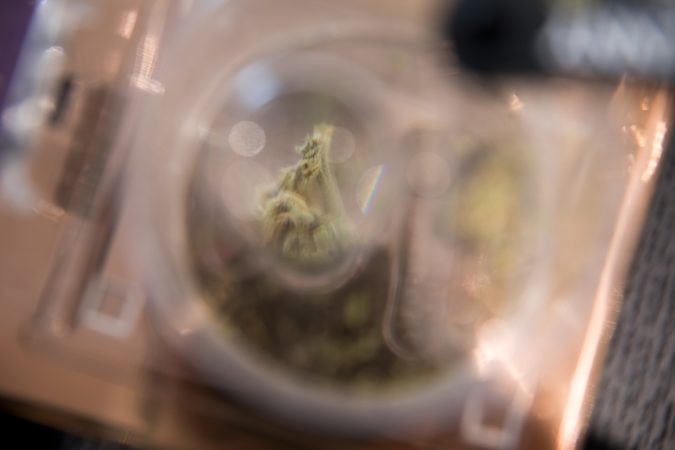
Its first crop of legal brick-and-mortar pot shops opened on April 1. The shops were met with long lines of people from different walks of life, from young businessmen to elderly couples — some not even from Canada — all wanting in on the high. The public’s interest translated into significant sales, as some shops reported opening-day profits of more than $50,000.
Ontario is anticipating $60 million in tax revenue per year from Canada’s recent legalization of recreational cannabis, University of Western Ontario professor Mike Moffat told CBC. As the Ontario government approves the opening of more retail cannabis shops, with plans to open 150 stores by 2020, that figure could reach as much as $1 billion per year along with spin-off economic benefits such as new jobs, reduced crime and fewer drug arrests.








